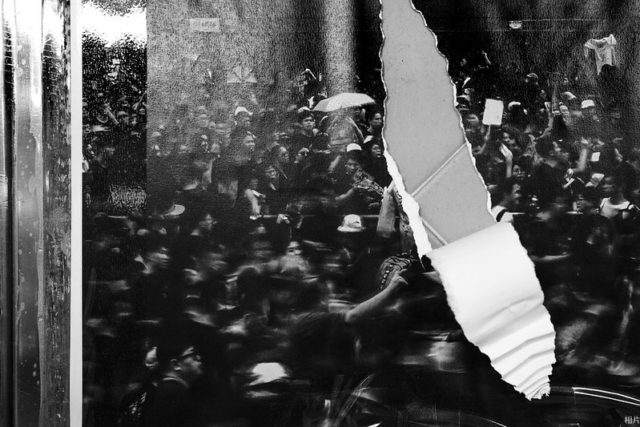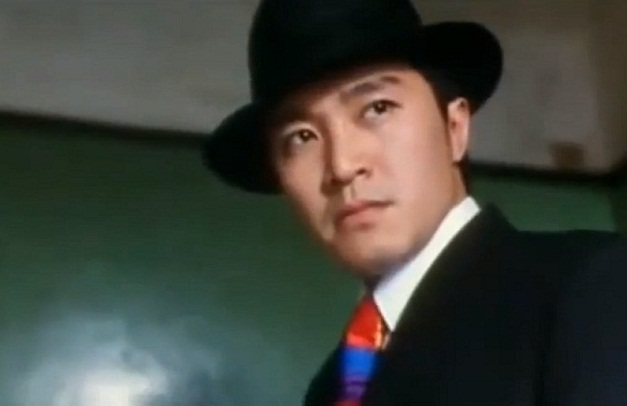No one fasts just for the hell of it

September 14, 2020
Editor’s Note: The following microessay is part of a series on The Margins responding to the idea of unfreedom and the continuous and connected struggles for freedom globally. Look out for more in the series in the coming weeks, and watch “The Sweat of Love and the Fire of Truth: A Reading,” our event featuring writers who reflect on freedoms, whether they be collective, practiced out in the world, or of the body and mind.
Here, Rosemarie Ho reflects on her poem Excerpts from The Hongkong/Xianggang Cookbook published on The Margins in October 2017.
“To speak, and above all to write, is to fast,” Deleuze and Guattari wrote as an aside in their consideration of Kafka’s work as minor literature—a literature constructed within a major language by a minoritized people that cannot be simply interpreted as expressions of a national consciousness. I was struck by that assertion, that to participate in language was to deny oneself sustenance and therefore risk incapacitation, even death. What stuck out to me was that my experience of language hadn’t been one of scarcity, but of excess, and yet that excess felt at times unnourishing. The local education system in Hong Kong requires its pupils to learn two written languages and three spoken ones (兩文三語), English, Cantonese, and Mandarin/Putonghua, so by the time I was a teenager, I was pretty much operational in all three. In school we would just switch, over and over, from one language to another: English, Cantonese, Putonghua, past, present, future.
That was the inspiration for “Excerpts from The Hongkong/Xianggang Cookbook,” even though I would edit and streamline it a lot more, given the chance. I also just wanted to write embodied poetry about eating rice.
One of the first things you learn as a child steeped in Chinese is poetry from the Tang dynasty. One that stuck with me was a poem called “Sympathy for Farmers” 《憫農》, by a bureaucrat and poet named Li Shen 李紳. It goes something like this: dragging a hoe in the midday heat / sweat dripping from stalk to soil / who knows that of this bowl of food / how each grain is its own hardship (鋤禾日當午,汗滴禾下土; 誰知盤中飧,粒粒皆辛苦). Parents and authority figures tend to refer to the last two lines quite a bit in their attempts to make kids finish their dinner (“you’re wasting the farmer’s work!”). But there was an ambivalence in the rhetorical flourish of the last two lines that I don’t think I’ve managed to exploit completely when I deployed them as the concluding lines of my own poem: the hardship, the struggle isn’t even that the farmer has to do all the work. It’s that the farmer isn’t even the one who’s benefiting from the fruits of his labor.
I wanted to remove the poem from its original context and to make the farmer’s lot our own. In “Excerpts”, it’s been reversed: the speaker’s struggle is in swallowing what she is being fed; she is completely alienated from the process that plopped the cannibal congee in front of her. It is in full view, the horror of her ancestral lineage ground up like pork floss through colonialism and repatriation and global capitalism’s gears, and yet she cannot not eat.
A minor literature does not traffic in the idioms of the dominant but contests them. In writing from the periphery, it is a literature “that produces an active solidarity in spite of skepticism; and if the writer is in the margins or completely outside his or her fragile community, this situation allows the writer all the more the possibility to express another possible community and to forge the means for another consciousness and another sensibility.” It is a method of writing that can arrest and illuminate existing relations, and from it, draw out new contingent affiliations, “its cramped space [forcing] each individual to connect immediately to politics.” It is in the same vein, I think, that the poet and critic Brian Ng wrote that “we should reimagine Hong Kong English, not necessarily even as a diminutive pidgin, a colonial residue, or even a hybrid dialect, but as a flow of codes fitting between power structures.” One could even say that a Hong Kong minor literature could be a space for collective enunciations yet to come.
No one fasts just for the hell of it; the stakes are always greater—to prepare oneself before surgery, to observe a spiritual rite, to protest. The new Hong Kong security law criminalizes secession, terrorism, incitements to any such activities, and collusion with foreign forces, a charge that is so vaguely defined that posting on social media is enough to warrant an arrest. To write honestly now about Hong Kong to the outside world would require the writer to give something up: what are you willing to risk? Would you risk arrest, police harassment and searches, endangering your family and friends, exile? I am willing to risk nothing. So I eat. I gorge myself. My intestines squirm.
If this microessay could define unfreedom: [ ]



